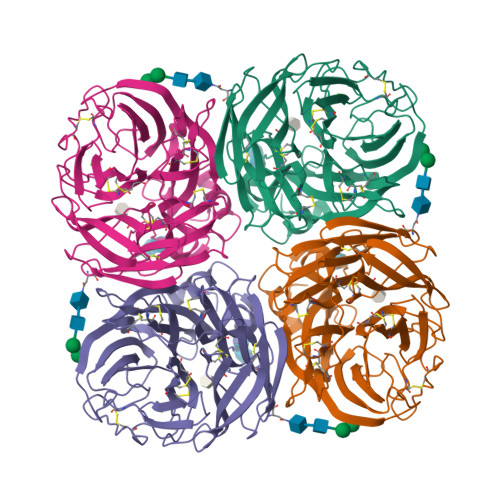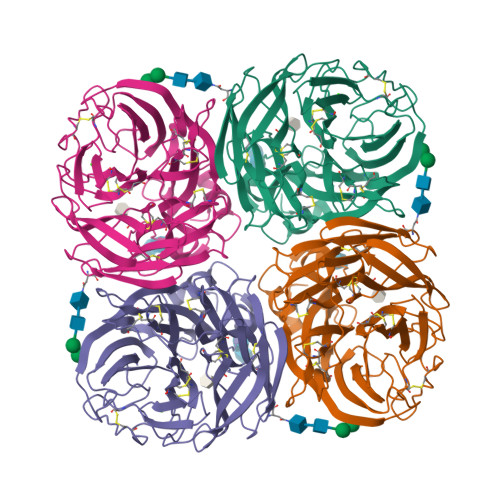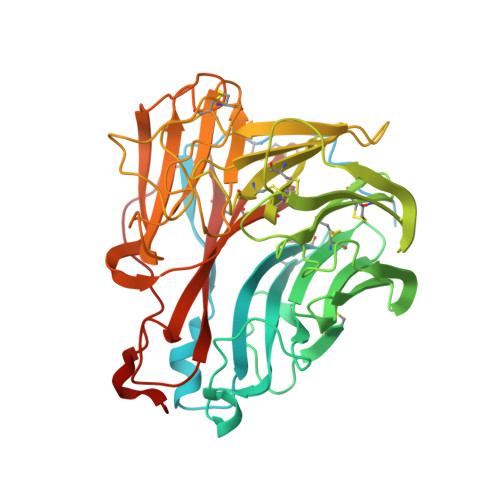Structural and functional analysis of laninamivir and its octanoate prodrug reveals group specific mechanisms for influenza NA inhibition
Vavricka, C.J., Li, Q., Wu, Y., Qi, J., Wang, M., Liu, Y., Gao, F., Liu, J., Feng, E., He, J., Wang, J., Liu, H., Jiang, H., Gao, G.F.(2011) PLoS Pathog 7: e1002249-e1002249
- PubMed: 22028647
- DOI: https://doi.org/10.1371/journal.ppat.1002249
- Primary Citation of Related Structures:
3TI3, 3TI4, 3TI5, 3TI6, 3TI8, 3TIA, 3TIB, 3TIC - PubMed Abstract:
The 2009 H1N1 influenza pandemic (pH1N1) led to record sales of neuraminidase (NA) inhibitors, which has contributed significantly to the recent increase in oseltamivir-resistant viruses. Therefore, development and careful evaluation of novel NA inhibitors is of great interest. Recently, a highly potent NA inhibitor, laninamivir, has been approved for use in Japan. Laninamivir is effective using a single inhaled dose via its octanoate prodrug (CS-8958) and has been demonstrated to be effective against oseltamivir-resistant NA in vitro. However, effectiveness of laninamivir octanoate prodrug against oseltamivir-resistant influenza infection in adults has not been demonstrated. NA is classified into 2 groups based upon phylogenetic analysis and it is becoming clear that each group has some distinct structural features. Recently, we found that pH1N1 N1 NA (p09N1) is an atypical group 1 NA with some group 2-like features in its active site (lack of a 150-cavity). Furthermore, it has been reported that certain oseltamivir-resistant substitutions in the NA active site are group 1 specific. In order to comprehensively evaluate the effectiveness of laninamivir, we utilized recombinant N5 (typical group 1), p09N1 (atypical group 1) and N2 from the 1957 pandemic H2N2 (p57N2) (typical group 2) to carry out in vitro inhibition assays. We found that laninamivir and its octanoate prodrug display group specific preferences to different influenza NAs and provide the structural basis of their specific action based upon their novel complex crystal structures. Our results indicate that laninamivir and zanamivir are more effective against group 1 NA with a 150-cavity than group 2 NA with no 150-cavity. Furthermore, we have found that the laninamivir octanoate prodrug has a unique binding mode in p09N1 that is different from that of group 2 p57N2, but with some similarities to NA-oseltamivir binding, which provides additional insight into group specific differences of oseltamivir binding and resistance.
Organizational Affiliation:
CAS Key Laboratory of Pathogenic Microbiology and Immunology, Institute of Microbiology, Chinese Academy of Sciences, Beijing, China.























